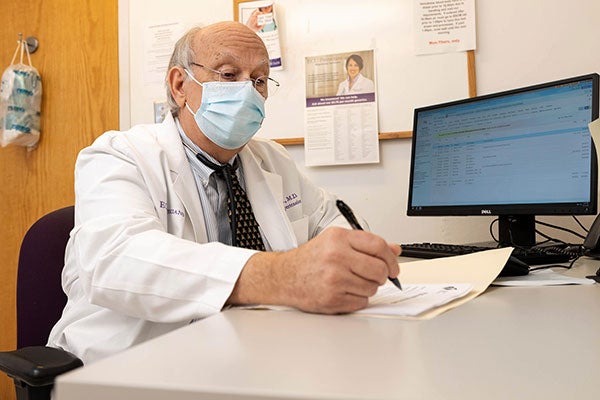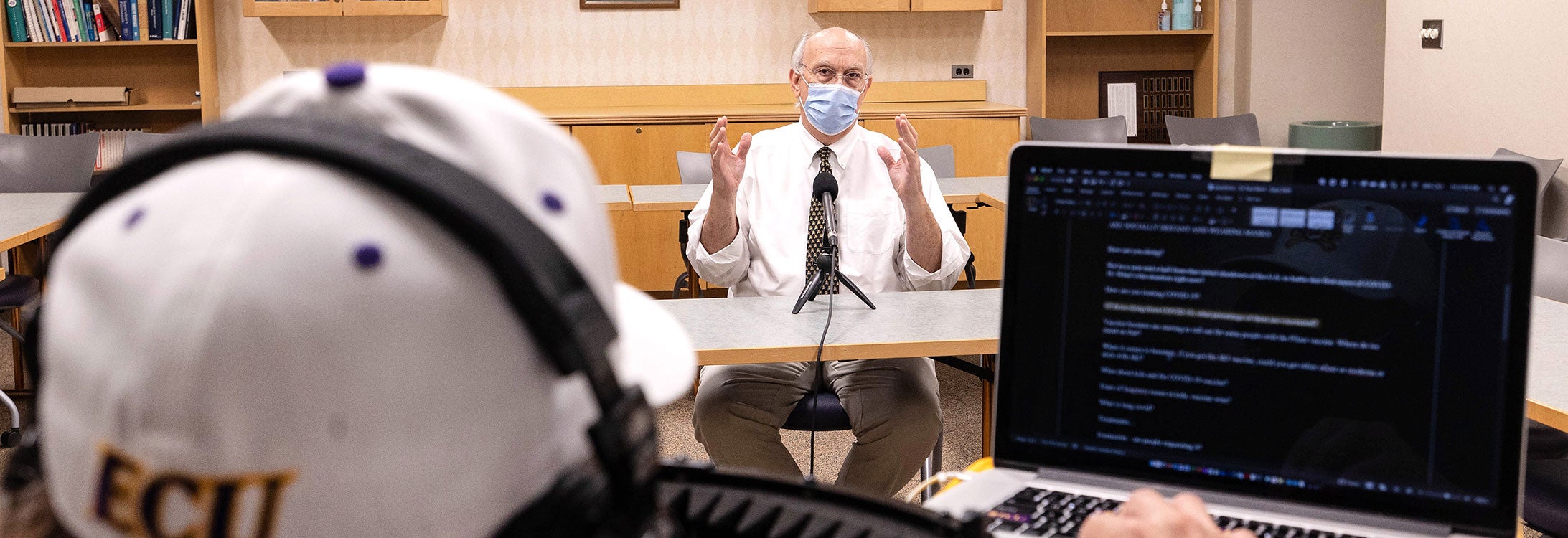ECU, Dartmouth studying chronic COVID
It’s known as “post-acute COVID-19 syndrome,” “long COVID,” “chronic COVID” and sometimes “long-haul COVID.” And a team from ECU’s Brody School of Medicine and the Geisel School of Medicine at Dartmouth College in New Hampshire is working to figure out what it is, what causes it and what to do about it.

Dr. Paul Bolin Jr. has recently begun organizing clinics based around understanding and treating chronic COVID-19.
Perhaps most of all, they’re assuring patients their symptoms are real.
Dr. Paul Bolin Jr. has recently begun organizing clinics based around understanding and treating chronic COVID-19.
“Nobody comes to this COVID clinic without crying,” said Bolin, chair of internal medicine at the Brody School of Medicine. “The reason they cry is because it’s the first time somebody has told them this is real. It’s amazing when I tell people this is real. Invariably, they’ll burst out crying because they’ve been carrying that emotional burden that it’s their fault.”
The CDC refers to the range of aftereffects experienced by some who have had COVID-19 as “post-COVID conditions.”
“By definition, it is persistent symptoms beyond four weeks of onset of symptoms,” said Bolin, who is among those leading the ECU and Vidant Health teams treating COVID-19-infected patients and working to vaccinate community members across the region.
“It spans the whole spectrum. There’s people who have had nothing more than loss of taste to people who were in the ICU for a month,” Bolin added. “We’re seeing persistence of fatigue, shortness of breath, unusual pain syndromes. Some people with loss of smell and taste for prolonged periods of time, a lack of mental clarity – cognitive fog, if you will. There have been studies that have documented significant decreases in cognition after COVID.”
Much remains unknown about COVID-19, including its long-term effects on the body and the brain and why some patients fare worse than others when they become infected by it.
“I think the benefit to collaborating is that we have different demographics. We both have rural populations, but I think we have a very rural, largely Caucasian population in New Hampshire and Vermont,” said Dr. Jeffrey Parsonnet, professor of medicine at Dartmouth. “There are geographic differences and there’s the reality that as you get more numbers you get additional information. Also, having researchers with different histories, different perspectives, different backgrounds help develop a research proposal.”
“We saw something like this after the 1918 pandemic. It was noted that many people after the 1918 flu actually ended up with Parkinson’s,” he said. “The (chronic COVID) research involves cataloging all of these symptoms.” To make an appointment, contact Caryl Holoman at 252-744-2570 or holomanc@ecu.edu.
